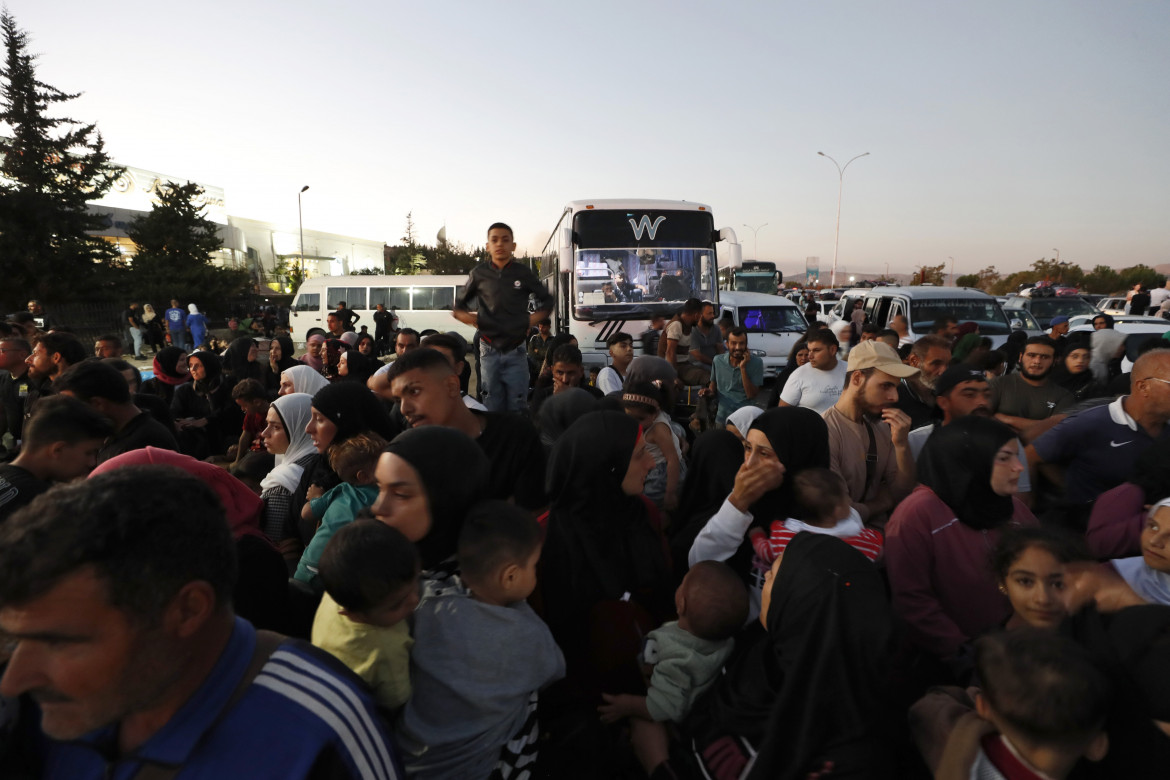Reportage
Lebanon under Israeli bombardment risks being totally cut off
It is feared that the airport will be shut down completely. Outbound flights are all booked until next week.

Air raids on the southern Beirut suburb of Dahieh have now become a regular occurrence. Another airstrike, this time near the al-Qaem mosque in Haret Hreik, took place on Thursday at 3 p.m. At least two people lost their lives and 15 were wounded, with one woman in serious condition, according to the Lebanese Ministry of Health.
This was the fourth airstrike on Dahieh in less than a week, all against key figures of Hezbollah, the “Party of God,” which is being forced to replace its chain of command. “Fighter jets targeted and eliminated” Mohammad Srour, “the commander of Hezbollah’s air unit, in Beirut,” the Israeli army’s Arab-speaking spokesman, Avichay Adraee, announced on X.
If confirmed, this was another successful strike against the top levels of the militia-party. Srour, also known as Abu Saleh, was the commander of the surface-to-air missile unit, commander of the Radwan Forces' Aziz unit and Hezbollah's emissary in Yemen to the Houthis. According to Israel, the ceasefire that has been talked about for days is not actually a possibility at this point: “No ceasefire in the north,” Israeli Foreign Minister Israel Katz said dryly on Thursday.
Gallant, Israel's Defense Minister, wrote on X: “I have approved the next set of operations that will be executed by the IDF in the northern arena. We continue to eliminate Hezbollah terrorists, dismantle offensive infrastructure, and destroy rockets and missiles.” Outgoing Lebanese PM Miqati also denied rumors coming out of New York of a possible ceasefire deal.
Thursday was a day of heavy attacks on both sides of the border. Hezbollah launched over 100 rockets against Kiryat Chmona, Kiryat Motzkin and the Rafael industrial complex, all north of Haifa, the Dado military base in Safer and some areas of Golan. Once again, the Israeli Air Force struck southern Lebanon and the Beka'a Valley in the east. The heaviest strikes took place in the areas surrounding Tyre, such as Burj Chemali – which houses one of the 12 Palestinian refugee camps in Lebanon and the Italian hospital – the outskirts of Sidon and Nabatiyyeh in the south.
In Younine (Ba'albak), in the northwest of the country, an air raid killed 20 people, including 19 Syrians. The border with Syria, through which more than 1.5 million refugees fleeing the still-ongoing civil war have arrived in Lebanon over the past decade, was crossed in recent days by some 31,000 people, according to figures from the Lebanese authorities: 15,600 Syrians and 16,130 Lebanese, said the official statement of the Lebanese crisis unit.
It is feared that the airport will be shut down completely. Outbound flights are all booked until next week. It is impossible to get out of Lebanon right now, unless you want to risk going through Damascus: Syria is a country still far from any kind of stability. Its airport has been bombed three times since the conflict began. Many airlines have canceled both inbound and outbound flights.
No civilian ships have been taking people outside the country since before the explosion at the port of Beirut on August 4, 2020. If the airport is closed – or, worse, bombed – Lebanon could become a trap at any moment.
Local and international NGOs, municipalities, civil defense personnel and the Lebanese army are trying to put together a coordinated response to the issue of displaced people who have arrived in Beirut, Sidon, and other safer cities. On Thursday, the army seized a significant number of mattresses – which seemed to have disappeared from stores – to be distributed to the displaced people. The shopkeepers had first hidden the mattresses away, then put them on sale at exorbitant prices.
But that is not the only face of the country: there is a Lebanon of solidarity. It includes those who are able to self-organize spontaneously and help, collect money and bring basic necessities to the temporary shelters that have been set up in record time, mainly in schools. Groups of young people are working as volunteers day and night to help those who have had to leave their homes without knowing when they will be able to return, and what will be left when they do.
Originally published at https://ilmanifesto.it/il-libano-sotto-le-bombe-israeliane-ora-rischia-lisolamento-totale on 2024-09-27
